Vogel Backs Lyme Disease Testing Bill
February 10, 2013
A bill that would require health care providers who order a Lyme disease test to give patients documentation recognizing the chance of false negatives sailed through the Senate recently, but has hit a road block in the House.
Witnesses and representatives of the National Capital Lyme Disease Association report that Lyme antibody tests can be wrong 71 percent of the time in early testing. Some patients, they say, were not informed by their physician of the possibility of false negatives, which caused some to go undiagnosed or misdiagnosed for years and rendered their disease incurable.
Sen. Jill Holtzman Vogel, R-Upperville, was one of several who offered testimonies on Jan. 29 in support of Senate Bill 971, and even said that her own family has been impacted by the disease.
“Loudoun, Fairfax and Fauquier Counties have been ravaged by Lyme disease,” she said. “There is extraordinary good here in merely communicating, somehow, with the public on the risks of undetected Lyme disease and that it can in fact be fatal.”
Vogel said when her son was 6-years-old he was diagnosed with Lyme disease, and she and her family dogs have also tested positive.
“I’m at a loss for what to do, because so many of my constituents have contacted me as a result of this legislation,” she said. “They urge us not to water down the communication component and are not in favor of the floor amendment.”
The Senate version of the bill passed with relative ease, but House Bill 1933, the mirror image of the Senate bill, met a different result. It was sent to the Health, Welfare and Institutions subcommittee, which is comprised largely of physicians.
Monte Skall, executive director of NatCapLyme, said the physicians have a few arguments against the bill, and submitted a substitute one which bares no resemblance to the original.
“They don’t want government interference in their medical practice and they worry that disclosing the information will negatively impact the physician/patient relationship,” she said Tuesday afternoon.
Skall takes issue with the arguments, though, since disclosure documents are required for any invasive test. She said when the Lyme disease test results get to the doctor, there is already a note from the laboratory warning of false negatives during the first month since a patient was infected.
“There’s no controversy over how flawed the test is,” she said. “This is not rocket science.”
Skall participated in a Lyme disease task force set up by the governor in 2011, and said she heard the same story from victims time and time again.
“There are too many people who are told they don’t have Lyme disease,” she said. “The patient eliminates it as a possible infection and goes about their business. Six months later, the same test would be positive.”
Susan R. Green, a practicing attorney who was an architect for the bill, said the Lyme antibody tests are distinguishable from other test that also have marginal fallacy rates.
“In the early stages, people have a better chance of throwing a dart onto a board than finding out they have Lyme disease,” she said. “But the thing is, there’s a much higher chance of curing the disease if it’s detected sooner.”
Green said the amended House bill “violates the code of informed consent.” The attorney has a personal tie to the legislation, as she suffered from undiagnosed Lyme disease. Seven years ago, Green had the basic sign — a bulls eye rash. However, she went through three negative tests. She went back for more testing because of her own research, not because a health care provider encouraged her to.
“It took me having a seizure in court to finally get the diagnosis, but I lost the ability to speak and went through 12 months of intense treatment,” she said. “If it weren’t for my persistence, I wouldn’t be having this conversation today.”
in 2011, Lyme disease was the most commonly reported vector borne illness in the country, and 96 percent of the cases that were reported came from 13 states — Virginia being one of them. More than 1,300 cases were reported in the state that year, according to Charles Devine, director of the Lord Fairfax Health District.
“The disease is endemic to Virginia, but the reported numbers aren’t closely tied to the number of cases that are actually treated,” he said Wednesday. “It’s certainly a serious illness.”
For 2011 alone, 44 cases were reported from Frederick County, 16 from Shenandoah County and 26 in Warren County.
Devine said after being in tick habitats — brushy areas on the outskirts of a field, the woods, areas of tall grass — a full body check is encouraged. A tick has to be attached the skin for a number of hours in order to transmit the disease. If bit, the bulls eye rash should appear anywhere from three to 30 days later.
“It’s fortunate that there is that grace period,” he said. “But if you go without treatment, you can see some real problems with headaches, pain, fever, neurological issues and cognitive problems.”
On Thursday, the amended House bill will be presented, and it can go one of three ways: the Senate can kill it, pass it as amended or further amend it.
“Senators from all over the state are standing up for this,” Skall said.
She said she feels if anything, more information communicated concerning the tests would only strengthen a physician/patient relationship.
“Why? Why wouldn’t a doctor want to give their patients this information,” she asked. “If someone is worried they may have contracted HIV, but the test comes back negative, an educated physician would still encourage that person to come back again for another test. This isn’t something that hasn’t been done before.”
Vogel agrees that in the least, public service announcements and education on Lyme disease should be offered to the general public on a regular basis.
“If Lyme disease isn’t in your community, you can’t imagine the impact,” she said. “Where I live, everyone knows about it. It’s extremely unfortunate that this public health issue has become such a political issue, but it really has.”
For more information on the legislation and to learn about Lyme disease, go towww.natcaplyme.org.
Contact staff writer Kim Walter at ![]() 540-465-5137 ext. 191, or kwalter@nvdaily.com
540-465-5137 ext. 191, or kwalter@nvdaily.com




